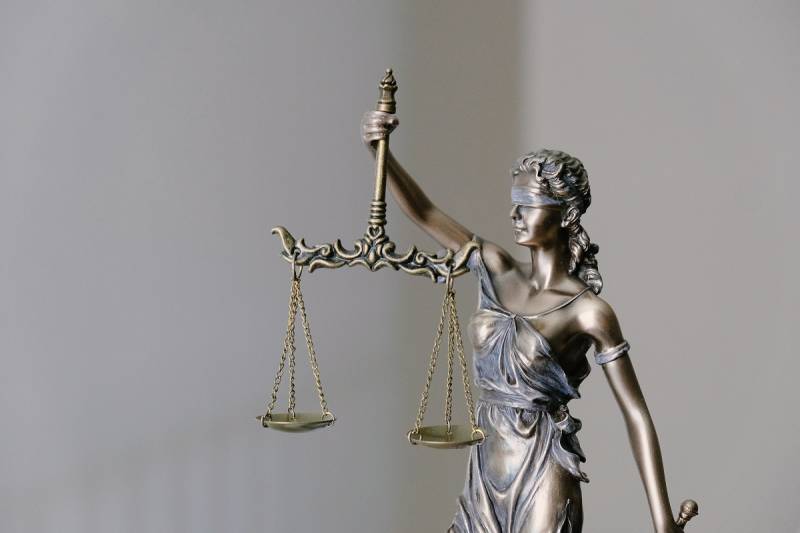
A global body of legal practitioners, bar associations and law societies has expressed concern over recent reports that lawyers belonging to the Ahmadiyya community in Pakistan were being required to renounce their faith to secure the licence necessary to practice law.
"This is a flagrant violation of their right to freedom of religion or belief," read a statement issued by the International Bar Association's Human Rights Institute (IBAHRI), an independent entity working to promote, protect and enforce human rights under a just rule of law, and to preserve the independence of the judiciary and the legal profession worldwide.
The statement issued the other day said that the new announcement targeting Ahmadiyya lawyers is yet another example of attacks on members of the Ahmadiyya community, which will prevent many from entering the legal profession or force them to choose between their religion and their profession.
It pointed to news reports of violence against lawyers belonging to the Ahmadiyya community, with one incident from April 2023 in particular where 77-year-old Supreme Court advocate Syed Ali Ahmad Tariq was reportedly assaulted by other lawyers while practising in court.
IBAHRI said that per reports, lawyers accused Tariq of violating Section 298 B of Pakistan's Penal Code (Misuse of epithets, descriptions and titles, etc., reserved for certain holy personages or places) by signing an affidavit in court using his full name, which includes the prefix 'Syed', denoting that this 'made him out to be a Muslim'.
The statement added that Tariq has been detained since and faces a potential custodial sentence of three years.
IBAHRI quoted the judgement of Justice Omar Sial at the Sindh High Court who adjudicated Tariq's case: "Not only an attempt was made to intimidate the court and interfere in the smooth administration of justice, but a lawyer… was physically abusive towards… one of the learned counsel for the applicant. […] This was simply unacceptable behaviour and conduct and must necessarily be condemned by the Bar Associations and Councils."
The IBAHRI Co-Chair and Immediate Past Secretary General of the Swedish Bar Association, Anne Ramberg Dr Jur hc, commented: "Pakistan must ensure that its laws and policies are in accordance with international standards without exceptions. Religious minority communities such as the Ahmadiyya must be granted all rights as per the Universal Declaration of Human Rights (UDHR) and the International Covenant on Civil and Political Rights [ICCPR], including the right to freedom of religion or belief as per Article 18 and Article 27 respectively. In particular, the latter grants extra protections for minority communities."
The association further pointed to how earlier in 2023, the district bar association of Gujranwala and Khbayer Pakhtunkhwa Bar Council made similar announcements whereby any applicant to these forums must positively assert that they are Muslim and denounce the teachings of the Ahmadiyya Muslim Community and its founder.
IBAHRI termed the arbitrary requirement as contrary to international legal standards, specifically the right to freedom of religion or belief, as affirmed in Articles 18 of the UDHR and ICCPR. It reminded that Pakistan ratified the ICCPR in 2010 and is bound by its provisions.
IBAHRI Co-Chair Mark Stephens CBE stated: "I am appalled by yet another attack on this marginalised community as well as lawyers in Pakistan. It is clear from the blatantly unfair treatment of the Ahmadiyya community that Pakistan is far from affirming and implementing international protections."
"As long as hate speech is directed at, and violence perpetrated against, Ahmadis because of their religious identity, the international community has a duty to speak out and speak up. The Ahmadis are being squeezed out of civic and public spaces by constant restrictions, and such treatment must be brought to a halt, Stephens added.
"Pakistan needs to affirm, without delay and without excuse, the rights of this marginalised people in accordance with international standards."
His sentiments were echoed by IBA Executive Director Dr Mark Ellis, who commented: "While the situation of the Ahmadiyya community in Pakistan has been of significant concern for many years, the targeting of the Ahmadiyya lawyers is yet another attack on this discriminated and marginalised group. Pakistan must implement its international law obligations and ensure human rights for all."
IBAHRI noted that since 2019, 61 Ahmadis have been charged under the country's blasphemy laws. Furthermore, those accused of blasphemy have been violently attacked, while some have been killed.

